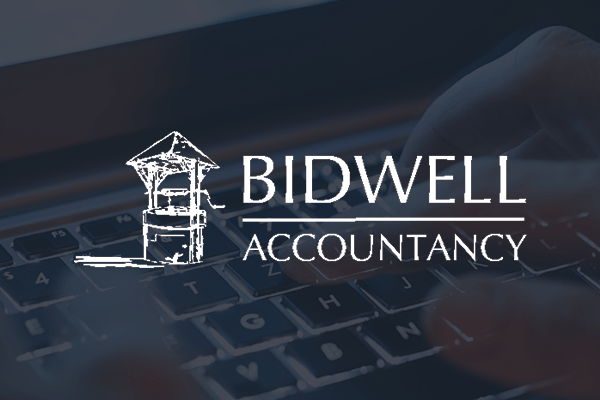April Newsletter

This issue we include news of the recently published, complex, Spring Finance Bill (No 2). We’ve outlined how and why you might want to make voluntary NICs - an opportunity that expires in July this year. Ask us if you feel you’d like to know more about this. VAT penalties are changing for both late submissions and late payments. It seems to be an improved, fairer system which we’ve detailed in our article. Our final piece is on how you can find out more about a company using Companies House and other means - useful for company checks and also to see what is publicly available for your own business. Don’t forget to check the end of month deadlines, April is always a busy time! As always, please do ask for any clarification on any of this information if you feel it might affect you or your business.
Spring Finance Bill published
The government published the Spring Finance Bill 2023 on 23 March 2023. The Bill is officially known as the Finance (No 2) Bill, because it is the second Finance Bill of the 2022-23 Parliamentary session. The Bill contains the legislation for many of the tax measures announced in the recent Spring Budget as well as previously announced changes. The Bill is 478 pages long, with 352 clauses and 24 schedules. Explanatory notes to the Bill have also been published.
Some of the many measures included within the Bill are:
- The introduction of full expensing for expenditure on plant and machinery
- The extension of the 50% First Year Allowance
- The permanent increase to £1m of the Annual Investment Allowance
- Changes to R&D relief
- Changes to the Seed Enterprise Investment Scheme
- Abolition of the pension's lifetime allowance charge
- Changes to alcohol duty
- Air Passenger duty changes
The Bill received its first reading in Parliament on Tuesday 21 March, and the majority of measures will come into effect for financial year 2023-24. It will now follow the normal passage through Parliament.
More time to top-up NICs
In some circumstances it can be beneficial to make voluntary National Insurance Contributions (NICs) to increase your entitlement to benefits, including the State or New State Pension.
Usually, HMRC allow you to pay voluntary contributions for the past 6 tax years. The deadline is 5 April each year. However, there is currently an opportunity for people to make up for gaps in their NICs for the tax years from April 2006 to April 2017 as part of transitional measures to the New State Pension. This deadline was set to expire on 5 April 2023 but has now been extended until 31 July 2023 after the government accepted significant public concern that many taxpayers would not meet the deadline.
You might want to consider making voluntary NICs if:
- You are close to State Pension age and do not have enough qualifying years to get the full State Pension.
- You know you will not be able to get the qualifying years you need to get the full State Pension during the remainder of your working life.
- You are self-employed and do not have to pay Class 2 National Insurance contributions because you have low profits.
- You live outside the UK but want to qualify for certain benefits.
If you fall within any of these categories, it may be beneficial to get a State Pension forecast and examine whether you should consider making voluntary NICs to make up missing years, known as topping up. Not everyone will benefit from making voluntary NICs and a lot depends on how close you are to retirement age and your NIC payments to date. If you think this opportunity may be relevant to your circumstances, please be in touch.
Changes in VAT penalties
The first monthly returns and payments affected by HMRC’s new VAT penalty regime were due by 7 March 2023. The new VAT penalty rules apply to the late submission and / or late payments of VAT returns for VAT return periods beginning on or after 1 January 2023.
Under the new regime, there are separate penalties for late VAT returns and late payment of VAT as well as a new methodology to the way interest is charged.
This replaces the old default surcharge regime and for most taxpayers should represent a fairer system.
The new system is points-based. This means that taxpayers will incur a penalty point for each missed VAT submission deadline. At a certain threshold of points, a financial penalty of £200 will be charged and the taxpayer will be notified. The threshold varies depending on the required submission frequency (monthly, quarterly, annual). For quarterly VAT returns, the penalty points threshold will be 4 points. The penalty points will reset to zero following a period of compliance, for quarterly returns this requires 12-months of compliance. There are also time limits after which a point cannot be levied.
The new regime also sees the introduction of two new late payment penalties. A first payment penalty of 2% of the unpaid tax that remains outstanding 16-30 days after the due date. The second payment penalty increases to 4% of any unpaid tax that is 31 or more days overdue. To help with the introduction of the new system, HMRC has confirmed that it will not be charging a first late payment penalty for the first year of the new regime (1 January - 31 December 2023) once the debt is paid in full within 30-days of the payment due date or if a payment plan is agreed.
Late payment interest will be charged from the date a payment is overdue, until the date it is paid in full. Late payment interest is calculated as the Bank of England base rate plus 2.5%.
Get information about a company
There is a significant amount of information about companies that can be obtained from Companies House. Companies House is responsible for incorporating and dissolving limited companies, examining and storing company information and making company information available to the public.
Much of this information is freely available. This is in line with the government’s commitment to free data and means that all publicly available digital data held on the UK register of companies is accessible without a charge.
This includes:
- company information, for example, registered address and date of incorporation;
- current and resigned officers;
- document images;
- mortgage charge data;
- previous company names; and
- insolvency information.
There is also a service called WebCheck that allows you to view a company's filing history and purchase copies of document images and a selection of company reports for a nominal fee. You can also elect to monitor a company and receive email alerts of any new documents filed at Companies House. This can be a useful resource to check your own company records at Companies House to ensure there no unexpected filings.
Tax Diary April/May 2023
1 April 2023 - Due date for Corporation Tax due for the year ended 30 June 2022.
19 April 2023 - PAYE and NIC deductions due for month ended 5 April 2023. (If you pay your tax electronically the due date is 22 April 2023).
19 April 2023 - Filing deadline for the CIS300 monthly return for the month ended 5 April 2023.
19 April 2023 - CIS tax deducted for the month ended 5 April 2023 is payable by today.
30 April 2023 - 2021-22 tax returns filed after this date will be subject to an additional £10 per day late filing penalty for a maximum of 90 days.
1 May 2023 - Due date for corporation tax due for the year ended 30 July 2022.
19 May 2023 - PAYE and NIC deductions due for month ended 5 May 2023. (If you pay your tax electronically the due date is 22 May 2023).
19 May 2023 - Filing deadline for the CIS300 monthly return for the month ended 5 May 2023.
19 May 2023 - CIS tax deducted for the month ended 5 May 2023 is payable by today.
31 May 2023 - Ensure all employees have been given their P60s for the 2022/23 tax year.

Unit 157, Milton Keynes Business Centre,
Foxhunter Drive, Milton Keynes,
Buckinghamshire, MK14 6GD
Bidwell Accountancy




